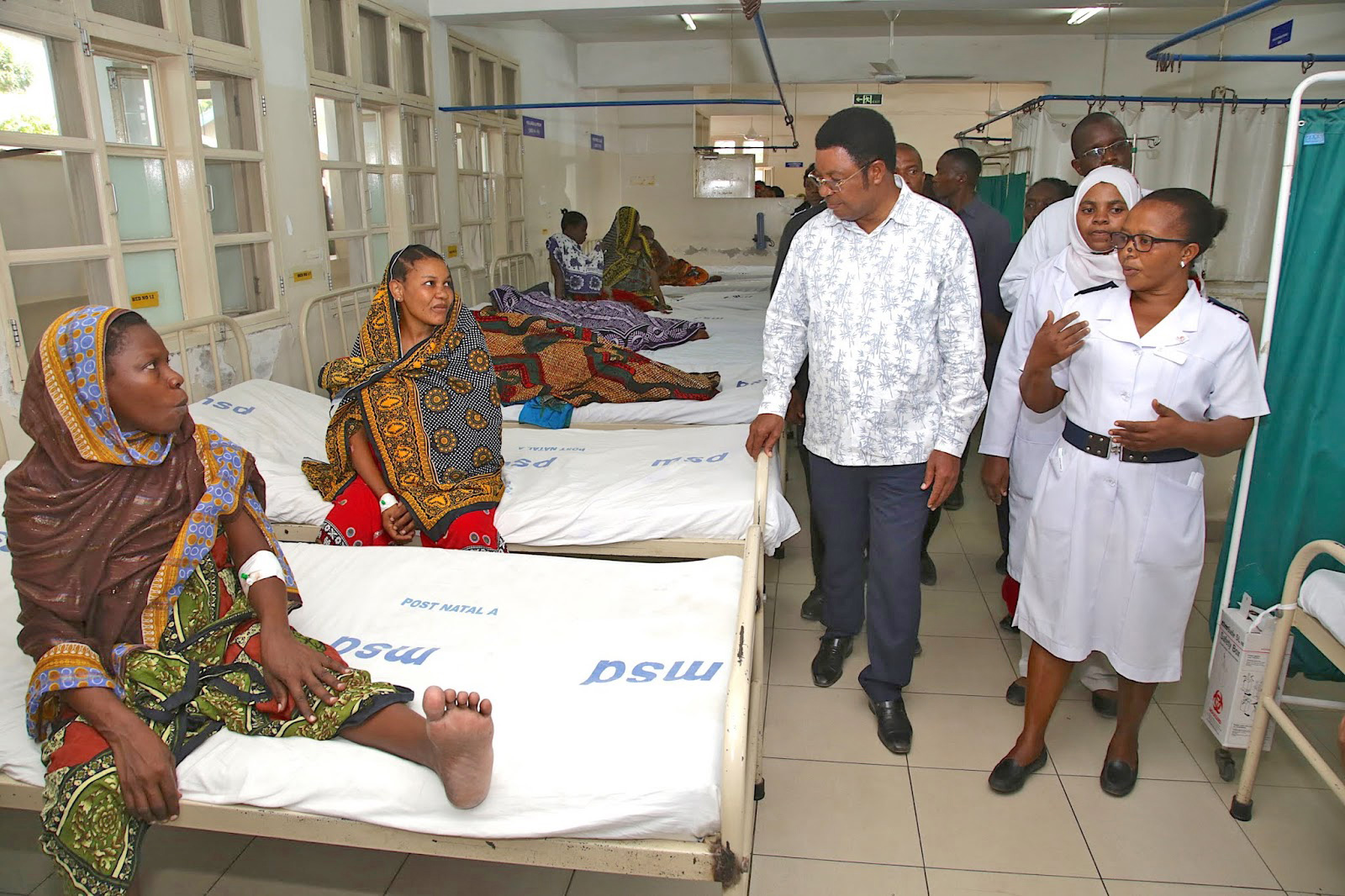Prime
Fraud Crisis: NHIF and health centres facing overwhelming deception

NHIF Director General, Dr Irene Isaka, addresses journalists at the Information Services (MAELEZO) offices in Dodoma on March 10, 2025. PHOTO | COURTESY
Dar es Salaam. While some health centres are grappling with delayed payments and claim rejections, leaving them unable to operate, the National Health Insurance Fund (NHIF) asserts that it is paying valid claims on time.
The health centres are complaining about delayed payments of up to six months due to accounting issues and fraud allegations, saying some claims are completely rejected.
As a result, some health centre owners claim they have been forced to stop providing services to NHIF members, while others have shut their doors entirely due to operational challenges.
However, NHIF's Director General, Dr Irene Isaka, dismissed these claims, telling The Citizen’s sister newspaper, Mwananchi, on Thursday, 3 April 2025, that:
“These claims are not true. The fund is paying valid claims on time, and no centre has been closed due to delayed payments. Centres are closing due to operational issues within the centres themselves.”
Health centre owners argue that services for the elderly and children under five face great difficulties during claim verification.
They allege that NHIF has been questioning why certain diagnostic services or medications were provided, despite being recommended by doctors who personally examined the patients, based on their condition and medical history.
“The documents we send to NHIF for payment, many concerning the elderly, often have accounting issues, and we don’t get paid. This also happens with other clients, especially those under five,” said a private health centre owner in Dar es Salaam, who spoke on condition of anonymity.
“It’s surprising that when a specialist doctor recommends a medication or test, but the fund claims the treatment wasn’t suitable for the patient,” said a staff member at a public hospital in Dar es Salaam.
One regional hospital official, who asked not to be named, described the delays: “You treat an NHIF patient today, and payment is made after six months. If it weren't for the government subsidy, I can't imagine what would have happened, and that's before any deductions.”
Another doctor at a private hospital remarked, "You may have a patient with a headache, fatigue, and fever, and another with a cough. As a doctor, you would conduct tests such as urine, malaria, and a full blood count. NHIF then questions why you ordered all those tests."
“It’s surprising. I’m the one examining the patient and documenting their symptoms. But they ask why I did a full blood count. Would they prefer I send the patient back to the lab for tests again? It’s simply not practical,” added the practitioner.
The Association of Private Health Service Providers in Tanzania (Aphtha) Chief Executive Officer, Dr Samwel Ogillo, confirmed that some centres had ceased providing services to NHIF members, though they were hesitant to discuss the reasons.
“Some centres were fined by NHIF, and after paying, they were prohibited from providing services to NHIF members. Others stopped due to non-payment for services rendered,” said Dr Ogillo.
The polyclinic owner in Handeni, Tanga Region, said that after their contract expired, they did not expect to continue providing services due to payment challenges.
“I treated patients for six months from March to September 2023 without payment. NHIF’s investigation from July to September delayed payments, claiming fraud,” said a health centre owner in Bunju, Dar es Salaam.
“They asked me to continue providing services, but during the audit, they claimed some receipts were erased, particularly two-year-old EFD receipts, to determine if I had been paid incorrectly,” added the owner.
Association of Private Health Facilities of Tanzania (Aphtha) Chairman, Dr Egina Makwabe, said the decision to stop services often depends on operational costs and whether there is financial sustainability in continuing services.
“Private centres rely on making a profit. NHIF’s package prices are more suitable for public centres, which receive government subsidies and don’t pay taxes, salaries, or construction costs. Without subsidies, they couldn’t operate,” explained Dr Makwabe.
He, too, acknowledged that some centres had closed after providing services without making a profit but said that he did not have exact figures, as some centres report while others do not.
What the CAG found
The Controller and Auditor General (CAG), Mr Charles Kichere, discussed NHIF's rejection of claims from public hospitals in a report released on 28 March 2024.
In the audit report for public corporations for the 2022/23 financial year, Mr Kichere highlighted that NHIF rejected claims amounting to Sh11.83 billion from public hospitals.
“During the 2022/23 year audit, I found that NHIF rejected a total of Sh11.83 billion, representing 15 percent of the total Sh76.89 billion claims from four public hospitals,” reads part of the CAG report.
The hospitals mentioned were Muhimbili National Hospital (MNH), Muhimbili National Hospital-Mloganzila, Muhimbili Orthopaedic Institute (MOI), and Muhimbili University of Health and Allied Sciences (Muhas).
Mr Kichere pointed out that the number of rejected claims has increased over the years, noting that in 2020/21, claims worth Sh3.87 billion (7 percent) were rejected, while in 2021/22, Sh8.84 billion claims (10 percent) were rejected.
He cited fraud, lack of valid reasons for not following procedures, double claims, excessive service use, pricing issues, and missing or invalid authorization codes as common reasons for rejections.
Mr Kichere warned that rejected claims could severely affect the financial stability of hospitals, leading to a loss of funds.
In a subsequent report on 27 March 2025, Mr Kichere highlighted an increase in rejected claims from public hospitals, which has negatively affected their finances.
“The Fund rejected claims worth Sh11.23 billion from MNH and Mloganzila, representing 16 percent of the total claims from regional and district hospitals. These rejections were due to pricing errors, incorrect dosages, wrong products, and unnecessary burdens,” added Mr Kichere.
NHIF’s statement
NHIF Director-General, Dr Isaka, responded to the complaints from private health centre owners, asserting that the fund pays valid claims on time, and no centre has been closed due to delayed payments.
She confirmed that NHIF had registered 10,089 service providers, with 1,804 of them being private.
While some centres have suspended services to NHIF members, she noted that many have resumed once the issues were addressed.
From July 2024 to March 4, only five centres had suspended services with efforts to resolve the challenges continuing.
On fraud, Dr Isaka noted that it remains a major issue, particularly where someone uses another person’s card to receive treatment.
She also addressed the claims verification process, stating that it follows treatment guidelines provided by the Ministry of Health. Additionally, the fund's law specifies how claims should be processed.
“NHIF has 167 regular doctors and 14 specialists involved in claims processing. We have highly qualified professionals, contrary to claims that NHIF lacks sufficient expertise,” she said.





